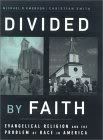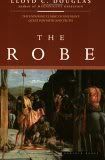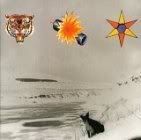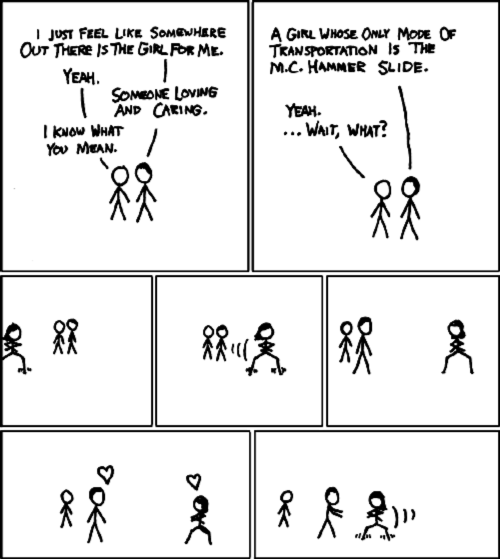 This chapter in Following Jesus in a Culture of Fear may be the most politically charged as Scott Bader-Saye tackles The Risk of Peacemaking. I should start out by saying that by peacemaking he is not saying that every Christian must be a pacifist, but simply that the call of peacemaking severely limits the ways in which we can justify violence. Fear and its attendant virtue of preemption pushes us to view the world suspiciously and often respond by force in order to ensure our security. Here he asks the question: is there a better, more Christ-like way to respond when we feel threatened?
This chapter in Following Jesus in a Culture of Fear may be the most politically charged as Scott Bader-Saye tackles The Risk of Peacemaking. I should start out by saying that by peacemaking he is not saying that every Christian must be a pacifist, but simply that the call of peacemaking severely limits the ways in which we can justify violence. Fear and its attendant virtue of preemption pushes us to view the world suspiciously and often respond by force in order to ensure our security. Here he asks the question: is there a better, more Christ-like way to respond when we feel threatened?
Returning again to providence, he declares that while trusting providence is the key to peace, it is also fairly readily turned on its head by those in power in such a way that it actually threatens peace. We see this all through history - when providence is used to justify violence and domination. After all, if whatever happens is God's will, then the victor must be God's winner. And, he notes, the victor not only writes the history, but also writes the theology. Thus we find scripture being used to support the rich, the powerful and the oppressors, contrary to the life of Christ as witnessed to in the gospels, which shows compassion and love towards the meek, the poor, and the oppressed.
In order to respond appropriately to threat, we must cultivate the virtue of patience. "One of the gifts of courage is the ability to be patient because we refuse to let fear push us to act before we are ready, that is, before we have taken time to gather the wisdom necessary to judge a situation with prudence. Because Christians trust in Gods' providence, we believe that time is on our side, that history unfailingly moves toward that fifth act in which God will gather up all things in Christ. Patience, then, as an outworking of our trust in providence, becomes a partner of peace." (129)
This patience, however, must not be creatively cloaked apathy. All peacemaking efforts ought to involve actively living the way of God. So, for example, during the civil rights movement it wasn't Godly patience that urged the black leaders to just wait. "Their kind of patience was not a freely chosen witness to God's providence, but a weapon wielded by the powerful to shut down social change." (130)
To be perfectly honest, I find the risk of peacemaking to be quite difficult. Not only to do, but to figure out what doing it even means. The idealist in me is drawn to pacifism, but the reality of non-response in the face of terrible, violent injustice chastens me. But can a nation wage a war 'justly'? I don't know. What are 'sufficient' reasons to respond in violence? It's all so hard to discern!
And even on a personal level, it is so tricky, especially given our astounding capacity for self-deception, to figure out when we are being patient and when we are being apathetic. It's far too easy to brush things off with an "all in God's time," but perhaps easier still to act rashly in the interests of 'urgent' tasks and problems.
Anyone have thoughts on this? I'm curious to hear what y'all think about pacifism, just war, criteria for helping to discern when to act, etc.
Next week, the final chapter: The Risk of Generosity






















 clouded over, and torrential rain began pouring down. Shortly thereafter, due to a little roof condition in Bellevue, it also beg
clouded over, and torrential rain began pouring down. Shortly thereafter, due to a little roof condition in Bellevue, it also beg










 Many moons ago, I went on a trip that went badly. Very badly. To soothe myself, I did what any self-respecting knitter would do. I bought a fabulous hank of out-of-my-budget yarn dyed in bright and cheerful colors. Upon returning home, I placed this yarn in my basket and waited for inspiration to strike, for the wool to whisper to me what it wanted to be, and then to knit it up into something beautiful that would in some way help redeem the memory of the trip.
Many moons ago, I went on a trip that went badly. Very badly. To soothe myself, I did what any self-respecting knitter would do. I bought a fabulous hank of out-of-my-budget yarn dyed in bright and cheerful colors. Upon returning home, I placed this yarn in my basket and waited for inspiration to strike, for the wool to whisper to me what it wanted to be, and then to knit it up into something beautiful that would in some way help redeem the memory of the trip.  And it sat there for months until finally, sick and tired of waiting for inspiration and starting to feel almost mocked by that bright little ball of wool, I saw a lacy little scarf pattern that I thought just might work and decided to knit the blasted thing. Which I did, and after making a six foot long scarf, still had more leftover to continue the mockery. So I made a head scarf. But like the memory of that week, it just wouldn't go away. Still more remained. Giving up on my idea of full redemption through yarn, I finally gave it away, tossing it to a fellow yarn lover with my best wishes.
And it sat there for months until finally, sick and tired of waiting for inspiration and starting to feel almost mocked by that bright little ball of wool, I saw a lacy little scarf pattern that I thought just might work and decided to knit the blasted thing. Which I did, and after making a six foot long scarf, still had more leftover to continue the mockery. So I made a head scarf. But like the memory of that week, it just wouldn't go away. Still more remained. Giving up on my idea of full redemption through yarn, I finally gave it away, tossing it to a fellow yarn lover with my best wishes.
